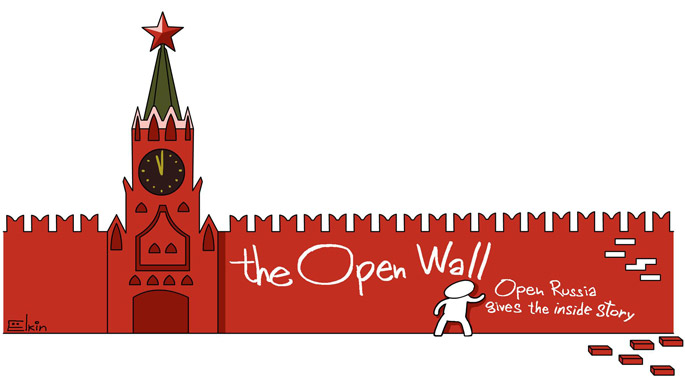The Battle of Marseilles
The Battle of Marseilles
A nation defines itself by its military victories. For Russians, we have the Battle on the Ice, Kulikovo Field, Borodino, Stalingrad, and now … Marseilles.

It was a crushing victory, one for the chronicles. The Russians were heavily outnumbered. Facing them were the massed ranks of the English. On the sidelines sat the French, waiting to see which way the battle would go. But our brave Russians were armed to the teeth, disciplined and well trained, battle-hardened from the civil wars they had fought in St Petersburg and Moscow, scarred veterans returning from Ukraine and Syria. The battle was joined, and the English soon put to flight, fleeing through the back streets of the old city, cowering under the onslaught of our bare-chested and bloodied warriors …
To be honest, there weren’t many in Russia who thought that the game against England would end in anything but defeat. It wasn’t just the bookies (who were taking bids at highly unpatriotic odds); a widespread feeling of pessimism had descended on Russia’s bars and living rooms before the match. You could sum it up like this: let’s at least try to avoid a humiliating defeat, and if we’re lucky we might sneak a goal in.
But something incredible happened. In the end we not only scored, we equalised in extra time when all hope seemed to have gone – it could have been scripted for a Hollywood blockbuster.
So what, then, is the whole of Russia – all of Europe, in fact – talking about a few days after the game? No, not the miraculous draw, or the state of the national team (which is not at all bad, by the way), but the massive fight that broke out after the game.
The trouble that began in the stadium itself after the final whistle, and which then spilled out onto the streets of Marseilles, became the number one topic on social media and on the nation’s TV stations. Russia-24, for example, presented the story unequivocally as “an attack on the Russian fans” (according to its correspondent, in retaliation for throwing a single coin). Two other channels, NTV and REN-TV, stuck to the same story but put the emphasis elsewhere: their websites declaimed with barely concealed pleasure how the Russians, though heavily outnumbered, managed to put the English to rout. The sports channel Match had a live Twitter feed running, as if reporting from a war zone in which “our boys” had managed to push back the enemy, and gain the upper hand.

Nor did public officials hold back. The Deputy Speaker of the State Duma, Igor Lebedev, for example, said, “I don’t see anything wrong with the fans fighting. Quite the opposite, well done lads, keep it up!” And Vladimir Markin, a member of Russia’s Investigative Committee, tweeted that the public prosecutor of Marseilles had called the Russian thugs well-trained combatants. “Normal men, men as they should be, they can’t handle that. They’re only used to dealing with the sort of ‘men’ you see at gay parades” (which sounds particularly offensive after the recent terrorist attack in Orlando).
The report of the hooligans having undergone training also got the so-called ‘liberal’ wing of the Russian media, and bloggers, quite worked up. Police speculation that some of the fans in black T-shirts had come to Marseilles in vans from Switzerland, having flown there first in order to avoid customs control, immediately snowballed into a conspiracy theory involving the FSB (Federal Security Service), separatists from Eastern Ukraine, and who knows else.
There are, however, no serious grounds for believing that these thugs were “men in green,” dressed in different garb – the unmarked combatants of the Ukrainian conflict who now so terrify the imagination of the Baltic states, Poland and other Eastern European countries. More likely than not they really were just members of Russian football hooligan ‘firms’ – something, it should be noted, that all the main independent sports websites in Russia agree on. They’ve fought like this before, they still fight, and they’ll continue to fight. This is what they came for, and they’ve got what they wanted.
No, the real question is why has their behaviour received such support rather than condemnation in Russia? These thugs who turned up from nowhere and for no reason, are being turned into national heroes literally before our eyes. A new mythology is being fashioned in which some bare-chested drunken louts brandishing iron bars become three hundred brave Spartans in Russian hats. Disgracefully attacked by the English, “our” lads had no alternative but to fight back, and in this great and noble cause they were joined by the French, with whom they drove the English off.
What really happened still needs to be established by UEFA, but even judging from the few amateur videos of the fight that we have now, you couldn’t exactly call the Russian fans innocent victims. Not that this makes any difference to the evening news on Russia’s Channel One and Two – a video can be edited easily enough.
But perhaps the most depressing aspect of this shameful spectacle is how patriotic feeling in Russia today, in 2016, has to be roused through such sordid skirmishes, and the low-minded, loutish support of those who respond – people who clearly don’t realise that by encouraging this form of behaviour they are setting a ticking time-bomb under themselves. Because the kids who are now watching the football on television will be taking it all in, and when they start to ask questions of their government (as one day they surely will), they’ll remember that this is how issues get resolved – with a clenched fist and some military know-how.




